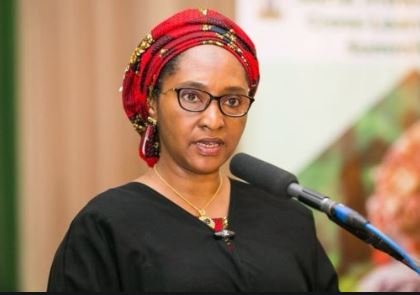The federal government says as part of efforts to cut down on its spending due to massive cut in the 2020 budget it is contemplating the removal of subsidy on electricity tariffs by July this year.
This was made known by the minister of Finance, Budget and National Planning, Zainab Ahmed at the weekend. Speaking on revenue plans of the government amidst the COVID-19 crisis at a webinar on Nigeria’s relationship with Africa and the global community post COVID-19, Ahmed said the government is taking measures to drastically cut down its costs.
Ahmed at the webinar hosted by PwC Nigeria noted that the federal government had “taken a lot of measures to reduce the cost of governance” including measures presented as opportunities by the economic forum.
According to her, the government has been able to regulate PMS through the PMS price regulation mechanism without bearing any subsidy and the petroleum price will be fully market determined. “We are also thinking towards removal of electricity subsidy but this is coming later maybe around July so that it will also provide fiscal base to us.”
Nigeria between 2015 and 2019 had spent about N3.9 trillion to subsidise electricity and petrol consumption in the country. PwC in a webinar conducted on the potential impacts of the COVID-19 on Nigeria’s power sector, explained that between the aforementioned years, the country’s expenses on petrol subsidy amounted to N2.3 trillion while that of electricity was N1.63 trillion.
Earlier in the year, the minister of Power, Alhaji Saleh Mamman, had stated the federal government’s commitment to institute a new electricity tariff regime last month, and also stop subsidising the power sector because electricity Distribution Companies (DisCos) failed to make optimum use of the financial interventions.
Meanwhile, as part of measures to reduce government’s spending this year, the minister of Finance further said that “we have entered into various levels of negotiations to renegotiate the repayment terms of some of our loans statutorily the multilateral loans.”
The Federal Executive Council (FEC) had last week approved the revised Medium Term Expenditure Framework (MTEF) for 2020-2022 and the proposed amendment to the 2020 budget, with both awaiting the approval of the National Assembly.
Zainab noted that the revised budget assumes a new oil price benchmark of $25, down from $30 in April 2020 and from $57 in December 2019 while crude oil production was revised downward to 1.94mbpd from 2.18mbpd approved in December 2019. The revised budget also assumes the new official exchange rate of N360 from N305 to the dollar.
Analysts at Afrinvest West Africa notes that the cuts in expected oil revenue “is realistic given the significant dip in oil prices and the uncertainty around the recovery of prices amid COVID-19” adding that Nigeria’s compliance with oil cuts has been weak historically but this could be more pronounced given the prospect for large revenue shortfalls in 2020.
“Overall, the FG’s revenue projection was cut by 38.1 per cent to N5.2 trillion from the N8.4 trillion earlier approved while total spending was slightly lower at N10.5 trillion from N10.6 trillion.
“While oil revenue assumptions are conservative, we believe non-oil revenue estimates are optimistic given the slowdown in economic activities. Meanwhile, the moderate cut in expenditure is an indication of the outsized share of non-discretionary spending.
“The implication of the significant revenue shortfall is a larger fiscal deficit estimated at N5.3 trillion or 3.6 per cent of GDP, more than twice the initial projection of N2.2 trillion and beyond the three per cent threshold set by the Fiscal Responsibility Act (2007). The deficit is expected to be financed by local loans of N1.6 trillion and multilateral loans of $6.9 billion, with $3.4 billion already secured from the IMF.
“Given our expectation of lower-than-expected non-oil revenues, we expect weak implementation of the proposed capital expenditure. On debt servicing, 9M:2019 numbers show that debt service to revenue trended lower at 45.2 per cent from 64.9 per cent in 9M:2018, but we anticipate a significant deterioration in the near-term given the large borrowing planned this year,” stated the analysts.


